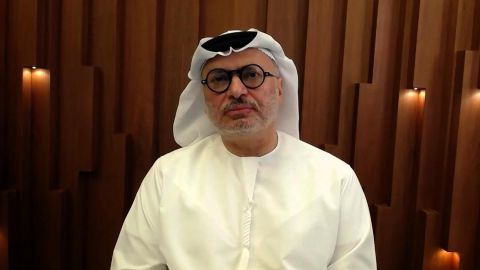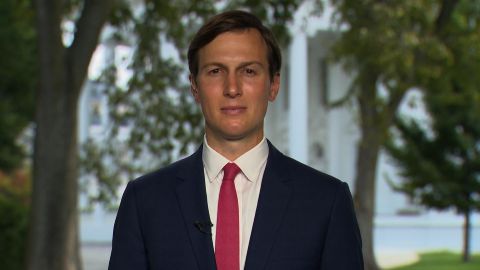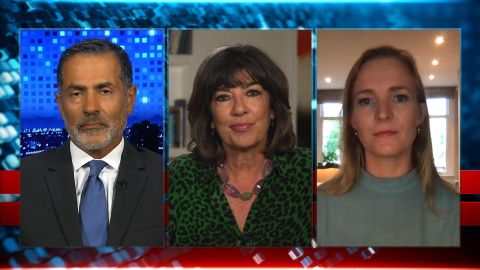Read Transcript EXPAND
CHRISTIANE AMANPOUR: Well, so let me ask you, Marietje, before I go back to Vali on the Iran nuclear deal, because that was one of the hallmark things that President Trump said he was going to get out of when he came into office, and he did. What impact is it having on Europe? And does it make you feel safer, less safe? And do you hope that, if there is another administration, a new administration, that somehow there’s enough of it that can be stitched back together or a deal-plus?
RIETJE SCHAAKE, FORMER EUROPEAN PARLIAMENT MEMBER: Well, it is clear that the E.U., along with many global partners, was actually very invested in this diplomatic deal with the Obama administration as well. And so, even if it was announced, it was still very disappointing, and I think harmful for the perspective of allowing diplomatic negotiations between global powers to render success. And so we have seen European leaders scrambling to cushion the fallout of the U.S. walking away, for example, by economic instruments. And there’s still ongoing questions about the extension of the arms embargo playing out at the U.N. as we speak. So, definitely, Europeans will look with great hope to a new administration, if that indeed is elected, to renegotiate diplomatically with the Iranians. And I can only hope that it will not be too late, because not only will the Middle East suffer more than it already does, but also the E.U. will be the first to feel the effects of further escalation and militarization of any conflict in the Middle East.
AMANPOUR: So, Vali, let me ask you, because you know this deal just about as well as anybody does. And we’re hearing reports that members of the Trump administration, either in the open or behind the scenes, are trying to do everything they can to make sure that coming out of the deal is irreversible, hedging their bets in case — in case he should lose and tying a future president’s hands. What future do you see for any deal at this level with a new administration?
VALI NASR, JOHNS HOPKINS UNIVERSITY: Well, I think, whether President Trump gets reelected, or there’s a new administration, I think the current situation with Iran cannot continue. The United States has shown that it can exert enormous amount of pressure on a country, as well as on its allies, but it cannot force a change in the policy of that country. I think the problem with President Trump has been that he has said that he wants a new deal with Iran, but, in reality, has behaved like he wants regime change. And that has destroyed any trust in what U.S. intentions might be. So, I think a new administration would have to basically try to reconstitute trust in American policy, not Iranian trust in American policy, but also European, Chinese and Russian trust in American policy.
About This Episode EXPAND
Christiane speaks with Jared Kushner, then with the UAE’s minister of state for foreign affairs, about the new Israel-UAE peace plan. She also speaks with Vali Nasr and Marietje Schaake about U.S. foreign policy on a larger scale.
LEARN MORE


